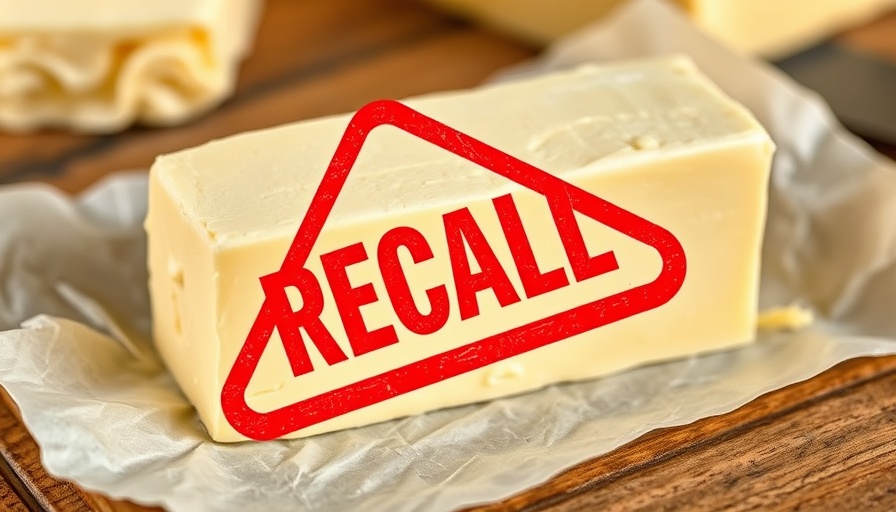
Understanding the Butter Recall: Why It Matters
Recently, a significant butter recall has drawn attention, with more than 64,000 pounds of product being pulled from shelves nationwide. This recall isn’t just a routine incident; it emphasizes the importance of food safety and consumer awareness. Products affected by this recall include various butter brands that may have been contaminated during production. Consumers are advised to check the labels of their butter to ensure they aren't consuming potentially harmful products.
The Health Risks Involved in Consuming Contaminated Butter
Butter, a staple in many kitchens, can pose health risks when contaminated. The main concern during this recall is the possibility of bacterial contamination, which can lead to foodborne illnesses. Symptoms may include nausea, vomiting, diarrhea, and abdominal cramps. By being aware of recalls, consumers can significantly lower their risk of falling ill, ensuring their families enjoy healthy and safe meals.
Historical Context: The Rise of Food Recalls
Food recalls are not new, but they have become increasingly common in recent years. Regulations have tightened, and manufacturers are more proactive in addressing safety concerns. For instance, the rapid communications through modern technology make it easier for consumers to stay informed. The recent butter recall is a reminder of this progress, albeit under unfortunate circumstances.
Your Role as a Consumer: Awareness Is Key
Consumers play a crucial role in food safety. Knowing how to spot recalls and understanding the labeling on food products helps you make informed decisions. Signing up for alerts from the FDA or following your preferred grocery store can keep you updated on recalls that could affect what’s in your refrigerator. A simple act of checking packaging can protect you and your family from potential health issues.
What to Do If You Have Affected Products
If you have purchased any of the recalled butter, the first step is to check the packaging. If your product has been recalled, you should not consume it. Most manufacturers will offer refunds or exchanges for returned items. It's important to dispose of the product safely to avoid anyone mistakenly consuming it.
Future Predictions: An Increasing Focus on Food Safety
With the rise of technology and awareness of food safety, it is likely we will see more stringent regulations in the food industry. Companies might invest more in systems to ensure compliance with safety standards, pushing for transparency in the supply chain. As consumers become more knowledgeable, they will demand better quality and safety in their food products.
How to Stay Updated on Future Recalls
To stay on top of food safety issues, consider adopting these best practices:
- Subscribe to FDA recalls and alerts.
- Follow health organizations on social media.
- Join community forums focused on consumer safety.
Final Thoughts: Empowering Yourself Through Knowledge
Staying informed about food recalls, such as the recent butter incident, is vital for ensuring the safety of your meals. By understanding how to identify recalls and the health risks involved, you equip yourself to make safer choices. Always check labels, follow guidance from manufacturers, and spread the word to keep your community safe.
 Add Row
Add Row  Add
Add 




Write A Comment